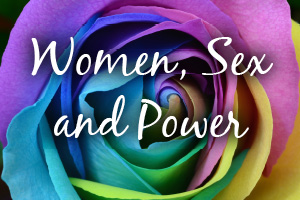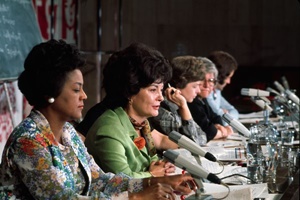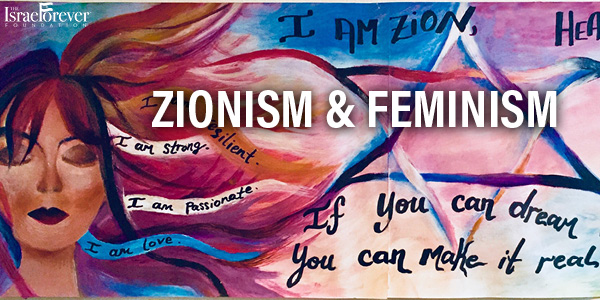Anti-Feminism and Anti-Zionism
by Einat Wilf
Feminism and Zionism are cut from the same cloth. Both movements emerged from the same intellectual and political origins, they both exhibited similar growth trajectories, becoming two of the most successful revolutions to sweep and survive through the 20th century, both continue to face ferocious backlash, and both remain vibrant and necessary in the 21st century.

Women members of Kibbutz Ein Harod work in the quarry, 1941. (Photo: Government Press Office Photography Department)
Feminism and Zionism are daughters of the enlightenment. They were born of that intellectual revolution against the inevitability of the human condition as one subject to a hierarchical, divinely ordained order, underpinned by a religious system and elaborate theology. Feminism and Zionism are rebellions against that order. They are both part of the modern overthrowing of a pre-modern order in which each living creature, born into a station and role in the superstructure of society, remains in that role, carries it out dutifully and does not challenge it. Feminism and Zionism are infused with resistance against the pre-Enlightenment idea that how you are born should determine how you die.
Feminism and Zionism are ongoing rebellions against millennia-long power structures that assigned women and Jews a “proper place” in society. For women, it was an order dating back to the beginnings of the agricultural era, that simultaneously enabled and necessitated their control as child bearing properties. For Jews, it was a theological, and by extension social, assignation of their inferior role by the two civilizations that emerged from Judaic monotheism, but also claimed to supersede it: Christianity and Islam.
Entire cultural structures—civilizations—were built on the edifice of female and Jewish inferiority—so much so, that these themes in their multitude of expressions were transparent to those who were raised into those structures... Feminism and Zionism challenged all that. They were both forms of refusal to accept the role that others have assigned to women and Jews. They were forms of self-assertion that cried out: I refuse to be seen how you wish to see me, I refuse to be that which you want me to be, I am not your inferior, I can be so much more than I am allowed to be, and I insist on being free to explore and make the most of my humanity.
LISTEN: Einat Wilf on Zionism and Feminism (radio interview)
Feminism and Zionism were built on self-definition and human agency. Both these movements could emerge only once the secular and radical idea that human beings, individually and collectively, are masters of their fate, was introduced. Once human beings could be conceived of as active agents of historical change, rather than passive receivers of divine fate, women and Jews could begin to formulate the notion that even if one might be dealt some of the worst cards in history, and by a whole lot of dealers, it does not mean that there is nothing to be done.
Something could be done, but for feminism and Zionism to challenge power structures that have existed for millennia and been predicated on women and Jews “knowing their place,” they could only do so on the footsteps of the modern political revolutions embodying the ideals of liberty, equality, and group solidarity.
Feminism and Zionism arose from anger at this kind of hypocrisy. Feminism and Zionism developed as those claiming to espouse the ideals of equality and liberty and solidarity twisted themselves into ideological and religious knots to justify keeping women and Jews out of this new world. Feminism and Zionism came into their own as the logical trajectory of equality among human beings could not but be extended to those who could also lay legitimate claim to being human beings, even if somewhat different from the mold.
It was the growing ability of women and Jews to lay claim to being human beings worthy of equality and liberty, as well as their ability to mobilize their respective groups to make that claim, that made the success of their revolutions possible…
It is in the nature of feminism and Zionism that they cannot rest until they have reached true equality: until the resources of power are redistributed so that women and Jews are no longer ever in danger of being put “back in their place.” This can only be achieved with the transformation of the civilizational systems that have determined what that “proper place” is. This is why feminism does not stop with education, voting, reproductive rights, equal pay at work, and safety at work. The more it gains, the more it exposes how entrenched the assumption of female inferiority is in the structures of society, and the more it presses onward do dismantle them. This is why Zionism has not ended with the establishment of a state for the Jewish people, because the idea of equal sovereign Jews, governing a share of the Earth’s land on their own, continues to be ferociously resisted by the large swaths of the two civilizations that were built on the assumption of Jewish disappearance, often with the declared intention of rolling back that Jewish “transgression” in the form of the State of Israel.
Feminism and Zionism started out as revolutions for changing the fate of women and Jews, but as they grew in power and faced growing backlash, they became revolutions for civilizational transformation. Neither Feminism nor Zionism will or could rest until new civilizations—entire cultural systems—emerge to replace those that were predicated on the assumption of female and Jewish otherness and inferiority.
Excerpts from original article HERE.

Einat Wilf is a former member of the Israeli Parliament, a writer, and public speaker. Her forthcoming book, Telling Our Story, is a collection of her recent essays on Israel, Zionism, the region, and her vision for peace.








